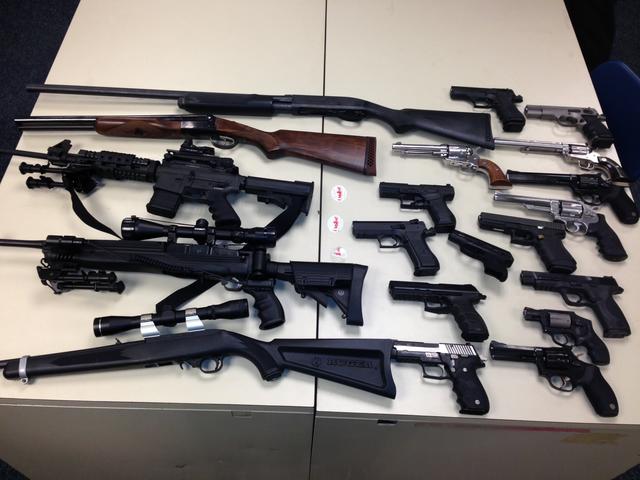
When you are served a limiting order (generally by a law enforcement agent or various other assigned officials such as an area constable), your address will certainly be looked at. They will be searching for weapons or entitlement licenses, which will be taken. The reason for this is that:
Up until a restraining order is removed from your name, it’s against Federal Regulation 18 U.S.C. 922( g)( 8) (the Lautenberg Modification), to buy, acquire, or remain in ownership of weapons, ammunition, or other harmful tools, e.g., swords, explosives, nitroglycerin, etc. Any kind of violation of this law is a criminal offense.
It’s additionally sensible to be mindful that this limitation uses up until all the included firms clear the limiting order from your name – it’s not simply enough to have the documentation that says the allegations are without advantage and also the order no more applies.
No matter if you’re fighting a restraining order against allegations which verify to be totally bogus, offenses bring a 5-year minimum sentence term.
One of the most significant problems when battling a restraining order, such as when you’re trying to win a guardianship battle as part of separation proceedings, is that no person clearly advises the named recipient of the better details of these constraints. A couple of intriguing truths that those combating a limiting order might want to know:
1. Prevented things consist of ritualistic and/or collection agency products.
So decorative swords or weapons positioned about your mantle come into this category.
2. What is thought about a “weapon” differs state by state.
Usually, government law permits black powder, muzzleloaders, and any type of gun produced before 1895 to be exempt from this regulation. They have ruled out weapons. Nonetheless, certain states in the USA do not adhere to the very same understanding – in Colorado, for example, the age of the tool or its kind doesn’t matter, and you can still wind up with a 5-year prison sentence for an infraction of the limiting order’s terms.

3. Being in close proximity to a barred item is thought about as an infraction.
If you go to a sibling’s residence or see your buddy who has a weapon, this can be employed as an infraction. Make certain you inspect if they have firearms in their house prior to checking out, it’s an easy means to obtain caught out.
4. Your task may remain in threat, depending upon your state of home.
Some American states have a wider case on what they call “unsafe materials”, and prohibit individuals battling a limiting order from being around unsafe chemicals. For example, if you’re a trucker you might discover your permit is revoked. This can, as well as have, suggested that papas simply shed their jobs the minute separation proceedings are lodged and a limiting order filed as a tactical maneuver to increase repayment and also prevent access to kids.
On the other hand, some courts in Colorado have spared a couple of people from on-duty use of firearms as a result of the nature of their careers. This started in 2008, however, can’t be trusted to be used regularly or fairly across into your house state – or perhaps within Colorado itself!
Eventually, it differs on your state as well as the court’s decision regarding whether your weapon possession is restricted.
5. Storage space for any kind of seized gun requires to be with an authorized person.
These consist of: a lawyer, the authorities or sheriff, or an approved guns dealership. You can’t just surrender them to a buddy for storage space, even if she or he is in an acknowledged position of power. The transport, as well as collection of the taken weapons, is also prohibited to daddies that are dealing with a limiting order, so see to it you schedule somebody else to do this component for you too.
Learn more about how to fight a restraining order, as well as details of their other effects on your life, browse more in this site for the more great info.
